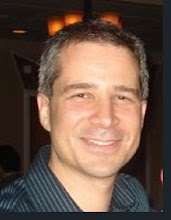
The recent volcanic eruption in Iceland and its ensuing chaos brought back fond childhood memories. No, I am not referring to the air pollution in New York wafting in the morning breeze. Rather I began reminiscing about browsing through encyclopedias as a kid (special note to those less than 20 years old: encyclopedias were large sets of books that tried to amass and organize lots of knowledge. This species of information will soon to be extinct through natural selection competitors of Wiki, Google and other internet sources).
One of my favorite articles in the encyclopedia was about Krakatoa. Krakatoa is a volcanic island in the Indonesia. In 1883, the volcano blew its head off destroying 2/3rds of the island and covering the rest in lava. Scientists estimate that this explosion was the most violent volcanic eruption in recorded history with an explosion about 13,000 times more powerful than the bomb that was dropped on Hiroshima (Breining, Greg (2007). "The Deadliest Volcanoes". Super Volcano: The Ticking Time Bomb Beneath Yellowstone National Park). The explosion was heard 3,000 miles away and the average global temperatures fell by as much as 1.2 degrees Celsius in the year following the eruption.
How is Krakatoa (or the Icelandic volcano) relevant today? To me, it is a reminder that humans have only a limited influence over nature. We can certainly cause damage but in terms of protection and improvement we are not as powerful as we sometimes think we are. We should be good guardians of the planet, vigorously trying to improve the environment and minimize the damage we cause, but not so arrogant as to think that we can create all solutions or that we are the only major influences on the environment.
The year after Krakatoa’s explosion, scientists explored the island to discover some life including grass and spiders. Perhaps the lesson there is that while life may be robust, humans as a species are just one more animal on earth which can easily become extinct.




No comments:
Post a Comment